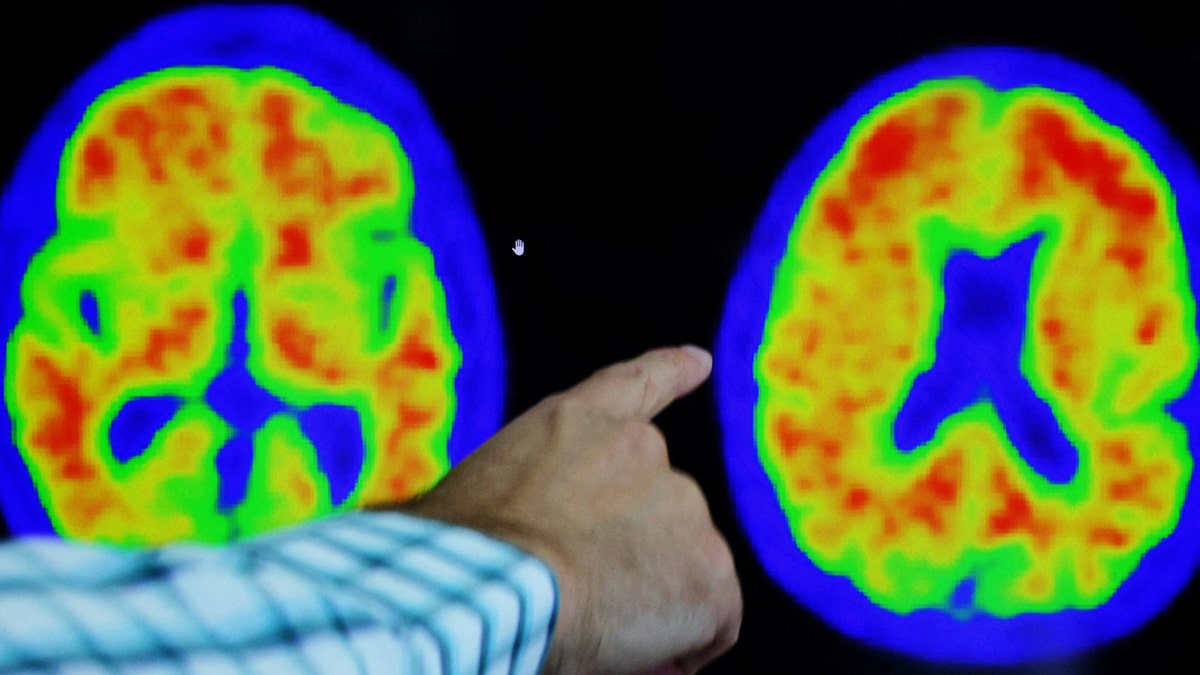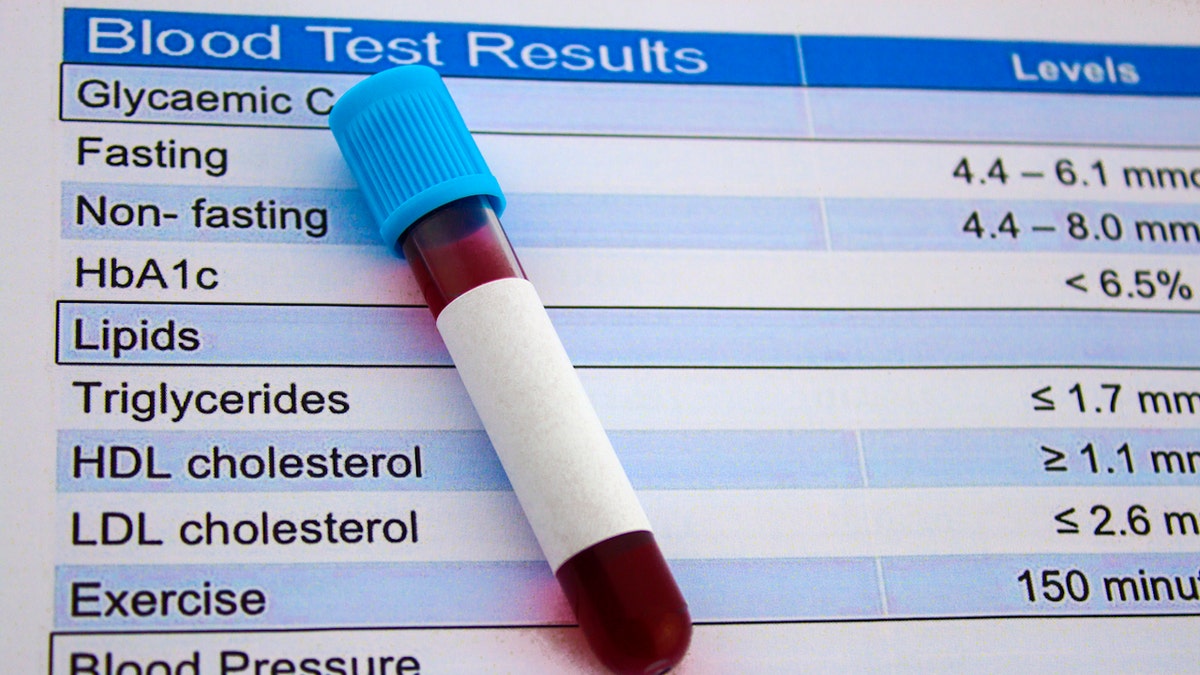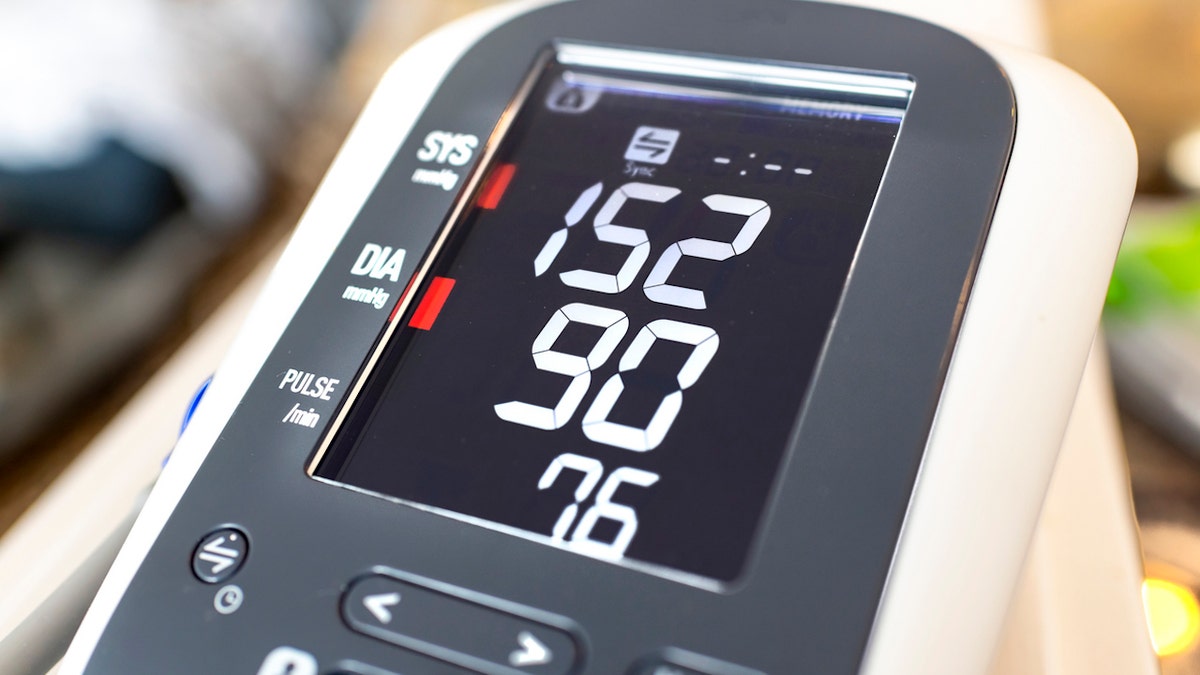The risk of Alzheimer’s disease could escalate along with high blood pressure, according to a new study.
Published in the medical journal Neurology, the research found that people age 60 and older who have untreated high blood pressure may be more likely to develop the common dementia type.
Although the results don’t prove that untreated high blood pressure causes the disease, they do show an association, the American Academy of Neurology stated in a press release.
ALZHEIMER’S AND PARKINSON’S RISK IS HIGHER FOR PEOPLE WITH BODY FAT IN TWO SPECIFIC AREAS
Study author Matthew J. Lennon, M.D., PhD, of the University of New South Wales in Australia, wrote in a statement that high blood pressure is a “leading cause of stroke and cerebrovascular disease, and yet it can be controlled with medication, reducing a person’s risk of these diseases.”
The study found that people age 60 and older with untreated high blood pressure may have an increased risk of Alzheimer’s. (iStock)
While previous research has found that taking blood pressure medications can reduce dementia risk, according to Lennon, less is known about the condition’s impact on Alzheimer’s risk.
“Our meta-analysis looked at older people and found that not treating blood pressure may indeed increase a person’s risk,” he said.
BOOST BRAIN HEALTH AND SLOW MENTAL AGING WITH 10 INTRIGUING TIPS FROM LONGEVITY EXPERTS
The researchers analyzed 31,250 people averaging 72 years old who were involved in studies measuring cognitive change and dementia diagnosis over time, the release stated.
After four years, 1,415 of those individuals developed Alzheimer’s disease.

A doctor points at potential evidence of Alzheimer’s disease spotted in a PET scan at Brigham And Women’s Hospital in Boston on March 30, 2023. (REUTERS/Brian Snyder/File photo)
People with untreated high blood pressure had a 36% increased risk of Alzheimer’s compared to those without the condition, the study found.
They had a 42% increased risk in comparison to those with high blood pressure who were taking blood pressure medication.
“This relationship is not altered by increasing age, which indicates that even those in their 70s and 80s are at significantly lower risk of AD if hypertension is treated,” Lennon told Fox News Digital in an email.
“These results suggest that treating high blood pressure as a person ages continues to be a crucial factor in reducing their risk of Alzheimer’s disease,” he added.
The researchers also found that there were no significant risk differences in the effects of blood pressure or medication use across different sexes or racial groups.
“This is a very promising result, as it suggests that optimal care for one group will be similar for others,” Lennon noted.
“Treating high blood pressure as a person ages continues to be a crucial factor in reducing their risk of Alzheimer’s disease.”
Dr. Marc Siegel, a professor of medicine at NYU Langone Medical Center and Fox News senior medical analyst, reacted to these findings in a conversation with Fox News Digital.
Alzheimer’s involves “neuroinflammation and the formation of plaques, which interfere with neuronal communication,” noted Siegel, who was not involved in the study.

“We have long known that high blood pressure, high cholesterol and high glucose levels — as well as obesity, smoking and alcohol use — contribute to increased risk of heart attack, stroke and vascular dementia,” a doctor told Fox News Digital. (iStock)
Added the doctor, “High blood pressure may accelerate this development by interfering with oxygen and blood supply to the nerve cells of the brain in some areas — especially the frontal lobe, which is affected.
Dr. Elizabeth Landsverk, geriatric medicine physician and author in California, was not involved in the study but said she was not surprised by the findings.
CLICK HERE TO SIGN UP FOR OUR HEALTH NEWSLETTER
“We have long known that high blood pressure, high cholesterol and high glucose levels — as well as obesity, smoking and alcohol use — contribute to increased risk of heart attack, stroke and vascular dementia,” she told Fox News Digital.
“This new study also finds a decreased risk of Alzheimer’s disease (amyloid proteins deposing the brain) among those treated for hypertension.”
Potential study limitations
The researchers used data from 14 different longitudinal studies from around the world, Lennon noted, which means there may be some variability in the way they define dementia and high blood pressure.
“Most of the studies also did not report mortality data, and thus our analysis did not account for the competing risks of dementia and death,” the researcher told Fox News Digital.

“These results suggest that treating high blood pressure as a person ages continues to be a crucial factor in reducing their risk of Alzheimer’s disease,” a study researcher said. (iStock)
Factors like socioeconomic status, health literacy, access to medications, poorly managed medical conditions, and depression and other mental illnesses could also confound the association between hypertension status and dementia risk, Lennon added.
“Because the study is taken over a long period of time, any number of outside variables can alter the results, making it less reliable,” Landsverk noted.
CLICK HERE TO GET THE FOX NEWS APP
Hypertension is extremely common, affecting two-thirds of those over age 65 and around 1.3 billion people worldwide, Lennon noted.
“In the vast majority of cases, it is clinically silent, causing no symptoms until you present with a heart attack, a stroke, or — as we now have shown — dementia,” Lennon said.

Hypertension is extremely common, affecting two-thirds of those over the age of 65 and around 1.3 billion people worldwide. (iStock)
Only 28% of those with high blood pressure have it under adequate control, he noted.
“While you might not feel the consequences of high blood pressure immediately, it is really important that you keep a close eye on it and bring it under control if you want to maximize your chance at a longer, happier, healthier life,” Lennon added.
For more Health articles, visit www.foxnews/health
For those who are obese, Landsverk added, losing weight is the fastest way to decrease risk factors.
“In general, the healthiest approach is adopting a plant-based diet and exercising 30 minutes each day to reduce your risk of heart attack, stroke, dementia and now Alzheimer’s disease by as much as 40%,” she advised.





